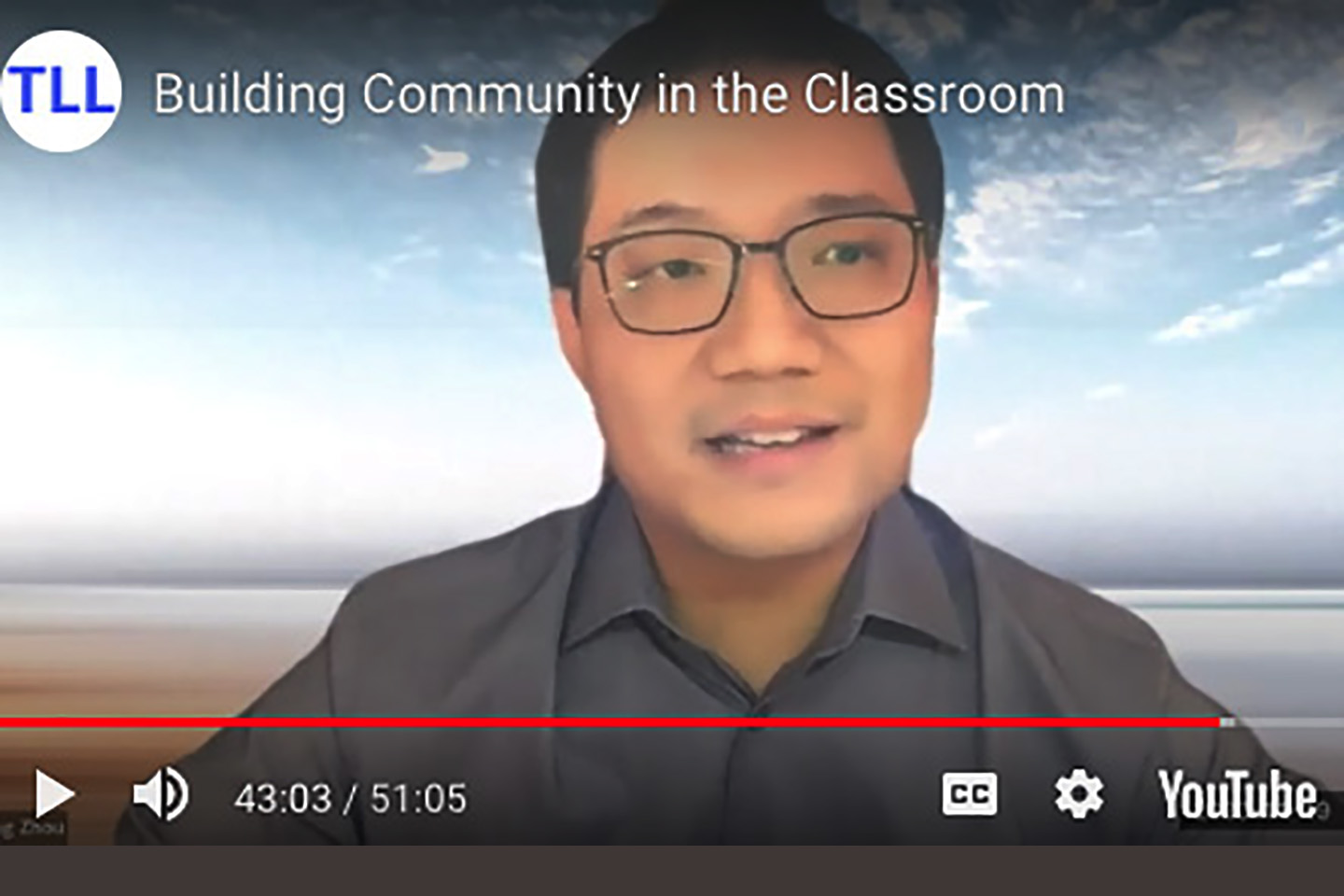
On November 19, the MIT Teaching + Learning Lab held a panel discussion on “Building Community in the Remote Classroom.” One of the three panelists was Kang Zhou, MIT Global Languages Lecturer in Chinese.
Kang Zhou pointed out that the language classroom is concerned with communicative proficiency, critical thinking skills, and cross-cultural understanding. How do we create virtual communities in which students have the chance to be fully engaged? What kind of community creates a positive learning environment? Certain fundamental characteristics are essential, suggested Zhou. Learning communities must be safe and inclusive, supportive and collaborative, and dynamic and sustainable. Zhou shared some of his approaches to achieving these goals.
An “ice-breaker” assignment had students post short videos introducing themselves and asked students to review and comment on others’ videos. A key part of this is getting students to engage with each other rather than being isolated learners. Zhou encouraged this by getting students to share information with each other about their learning strategies, such as what methods each employs to remember Chinese characters. Zhou also provided students with a weekly virtual Chinese “lunch” table for informal discussion. Zhou invited students to create videos of themselves teaching the Chinese they had learned to another family member, such as this video. Authentic language use was also encouraged by partnering students with a student in China with whom to communicate via WeChat. Zhou pointed out that building an embracing learning community in the virtual classroom is both a challenge and an opportunity.
To view the full video of the panel:
